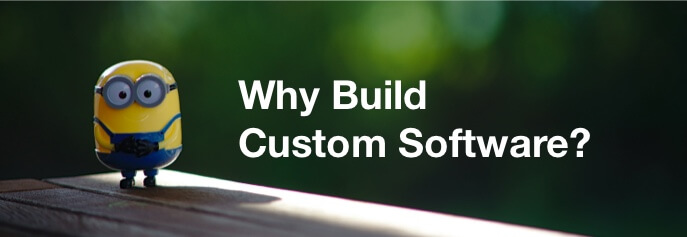Why Build Custom Software?
By Morgan Chance, 22 February 2022

There are many reasons why some organisations and businesses really benefit from building their own custom operational software…
Here's one. I think it's interesting and if you’re considering your business software options this is definitely worth exploring.
One of our clients runs an educational accommodation facility, sort of like a hotel for teaching and research groups. They have a commercial kitchen used to feed large groups of people at a time, sometimes multiple groups over many days. They have catering companies on contracts to do this and the contracts come up every few years and sometimes change hands.
Things Change
They've recently got a contract with a new catering firm and decided to dramatically change the way they quote, invoice and book catering for clients.
They asked us to make changes in the system to make this work.
Luckily we had designed the system to be fairly flexible and also... it's built with FileMaker. With the flexibility of this platform, and being a custom solution built solely for them, it took us around two days to make the changes once we got cracking.
As soon as we deployed it we asked for their latest prices on catering as that was the final piece of the puzzle to make it work for them.
And Change…
At this point, the manager called and said, "Actually, the bosses in our organisation have decided to make another change and we won't be doing catering quotes, invoicing or booking like that at all any more.”
Lucky for them they have a system that rolls with those punches and doesn’t cost 10's or 100's of thousands of dollars every time they reinvent the wheel, which they do all the time all over the place.

Flexibility
Commercial Off The Shelf (COTS) software and products including SaaS options are an excellent choice in many firms but may not be especially flexible or responsive when your needs change.
Whereas, low code software platforms such as Claris FileMaker can offer a huge degree of agility and responsiveness without being monstrously expensive or time consuming to implement.
The big takeaway from this type of story is that it’s important to think about the decision making and operational environment when assessing software options for your business. Are you fluid and dynamic? Do your processes change and respond to the market? Will you need flexibility?
There may well also be external forces at play: Are there other departments, clients, suppliers or governmental compliance causes that could impose changes on you next year (or even next week)? How quickly do you need to adapt and accommodate?
There’s more to the ‘cost’ of your software choices than the immediate bottom line. Make sure you consider any potential for changes in the way you work as you’re exploring your software options.


Something to say? Post a comment...
Comments
No one has commented on this page yet.
RSS feed for comments on this page | RSS feed for all comments